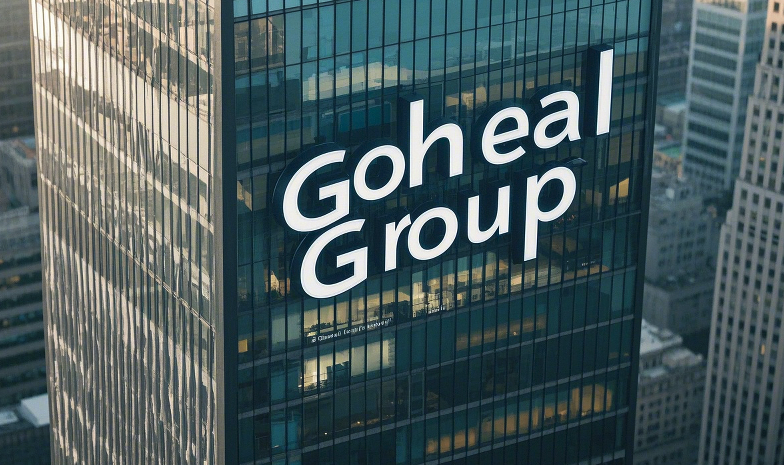"When a butterfly flaps its wings, it can cause a hurricane halfway around the world." The capital market is never short of thrilling M&A stories, especially the acquisition of controlling stakes of listed companies, which often affect the entire system. Violent stock price fluctuations, urgent intervention by regulatory agencies, and ever-changing market sentiment, any link may increase the variables of the transaction.

American Goheal M&A Group
Looking back at history, from the stock price fluctuations before Elon Musk acquired Twitter, to the century-long acquisition battle between LVMH and Tiffany, to the market shock after the emergency suspension of Ant Group's IPO, these cases all show that the acquisition of controlling stakes of listed companies is not only a capital game, but also a trigger point for a series of market reactions.
So, what exactly makes the acquisition of controlling stakes a "domino" in the capital market? How to predict the possible chain effects and ensure the smooth implementation of the transaction? As a professional institution deeply involved in the global M&A market, Goheal has witnessed the "butterfly effect" in countless transactions. Today, we will take you to reveal the operating logic.
Stock price fluctuations, "advance spoilers" of the capital market?
The capital market will never "quietly" wait for an acquisition to be finalized. Usually, when a company becomes an acquisition target, the market can always smell unusual signals in advance: abnormal stock price fluctuations, a sharp increase in trading volume, and early reaction in the derivatives market.
Take Musk's acquisition of Twitter as an example. Before the official announcement of the acquisition plan, Twitter's stock price had already fluctuated abnormally, and some institutions even made arrangements in advance through the options market. Similar situations are common in the A-share and US stock markets. In many cases, the first signs of M&A transactions are not news reports, but abnormal movements in the stock market.
So, where do stock price fluctuations come from? Sometimes it is because of insider information leaks, sometimes it is the game of market speculators, but more importantly, the expectations of market sentiment are accelerating price changes. For acquirers, how to manage market sentiment and control the pace of acquisitions is an extremely important art.
Goheal believes that in the acquisition of controlling rights, exposing the acquisition intention too early may raise the acquisition cost and make shareholders open their mouths; while completely concealing the plan may cause unnecessary fluctuations due to excessive market interpretation. Balancing market expectations is one of the core challenges of top M&A teams.
Regulatory intervention, the "invisible threshold" that acquirers must cross
The capital market is not a "free arena". Every major merger and acquisition cannot be separated from the review of regulatory agencies. From the US SEC (Securities and Exchange Commission), the European antitrust agency, to the China Securities Regulatory Commission, each market has its own "rules of the game".
Some acquisitions will trigger antitrust investigations. For example, when Facebook (now Meta) acquired Instagram and WhatsApp, it faced regulatory pressure; some transactions involve national security reviews, such as TikTok's acquisition of US business. The intervention of regulatory agencies often makes the originally "simple" transactions become confusing.
In the history of mergers and acquisitions, some acquisitions "aborted" during the regulatory review stage, which brought a great impact on the market. For example, in 2020, Nvidia planned to acquire chip company Arm, but eventually had to terminate the transaction due to opposition from global regulators, causing an uproar in the market.
Goheal found that the attitude of regulatory agencies often determines the success or failure of mergers and acquisitions, and experienced acquirers will make arrangements in advance to increase the transaction approval rate by adjusting the transaction structure, providing compensation plans, and splitting assets. For investors who want to acquire controlling stakes in listed companies, how to play the "compliance card" with regulators often determines the final outcome.
Market sentiment, the "invisible variable" that determines whether the transaction can be successfully completed
In addition to stock prices and supervision, market sentiment is also a key factor affecting the success or failure of controlling stake acquisitions.
A typical case is LVMH's acquisition of Tiffany. In 2019, LVMH announced the acquisition of Tiffany for US$16.2 billion, but after the outbreak of the epidemic in 2020, the luxury goods market was sluggish, and LVMH once tried to lower the price, causing the transaction to be deadlocked. In the end, under the legal battle and market pressure from both parties, LVMH still completed the acquisition, but the price was slightly adjusted.
This case shows that even if the two parties have signed an agreement, changes in market sentiment may still affect the final direction of the transaction. Once market sentiment fluctuates violently, shareholders may demand a higher premium, the acquirer may re-evaluate the transaction value, and even the acquisition may be canceled in the end.
Goheal's research shows that during the sensitive period of market sentiment, the acquirer needs to:
1. Actively communicate-send stable signals to shareholders and investors to avoid market panic.
2.Flexibly adjust the transaction plan - optimize the transaction structure and improve feasibility according to market changes.
3. Manage expectations - avoid excessive optimism or pessimism, and guide the market to have a reasonable understanding of the transaction.
The acquisition of controlling rights is not a "one-shot deal", but a global battle.
Behind the acquisition of controlling rights, it is not just as simple as "buying shares", but a chain reaction of market reactions, regulatory reviews, and public opinion games.
For entrepreneurs and investors who want to enter the M&A market, how to predict market reactions before the transaction and respond to possible chain reactions in advance is the key to determining the success or failure of the transaction.
Have you ever paid attention to the market fluctuations brought about by the acquisition of controlling rights? What factors do you think will affect the future acquisition trend? Welcome to leave a message in the comment area and discuss with Goheal to jointly interpret the next chess game of the capital market!

Goheal Group
[About Goheal] Goheal is a leading investment holding company focusing on global mergers and acquisitions. It has deep roots in the three core business areas of acquisition of controlling rights of listed companies, mergers and acquisitions of listed companies, and capital operations of listed companies. With its profound professional strength and rich experience, it provides companies with full life cycle services from mergers and acquisitions to restructuring and capital operations, aiming to maximize corporate value and achieve long-term benefit growth.